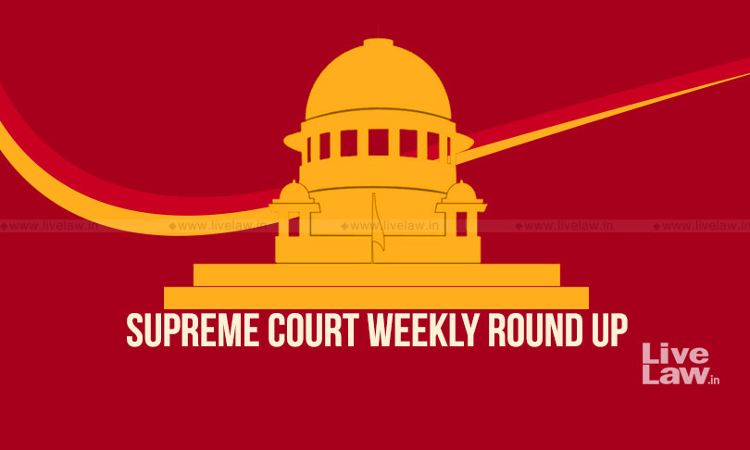- Home
- /
- Top Stories
- /
- Supreme Court Weekly Round Up
Supreme Court Weekly Round Up
Ashok Kini
14 April 2019 7:45 PM IST
SC Dismisses Centre's Preliminary Objections Against Relying On "Privileged" Documents; Review To Be Heard On Merits [Yashwant Sinha V. Central Bureau Investigation] The Supreme Court dismissed Centre's preliminary objection against using privileged documents for considering the review petitions in the Rafale case. While dismissing the Centre's preliminary objections, the CJI...
Next Story



